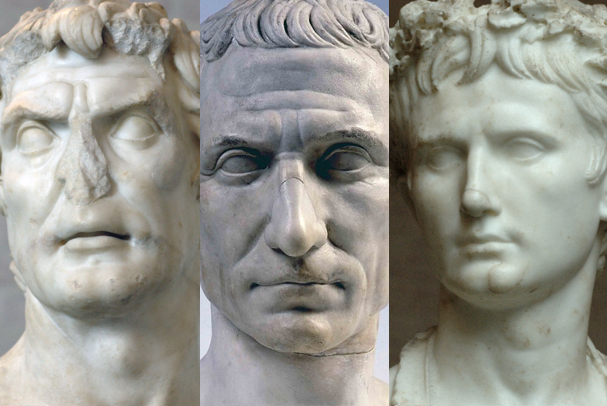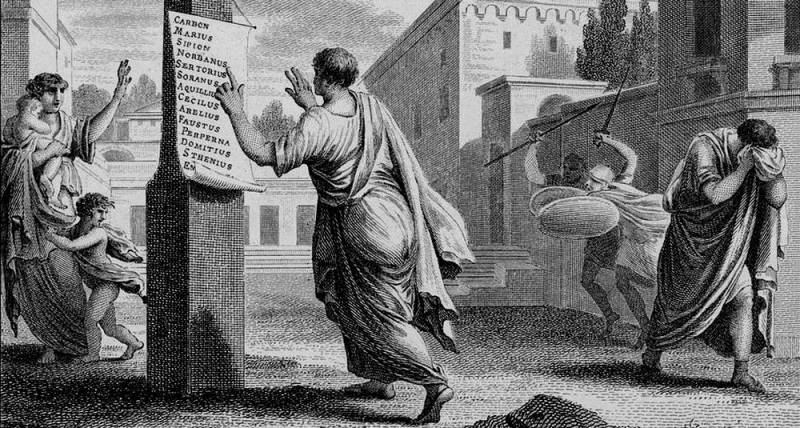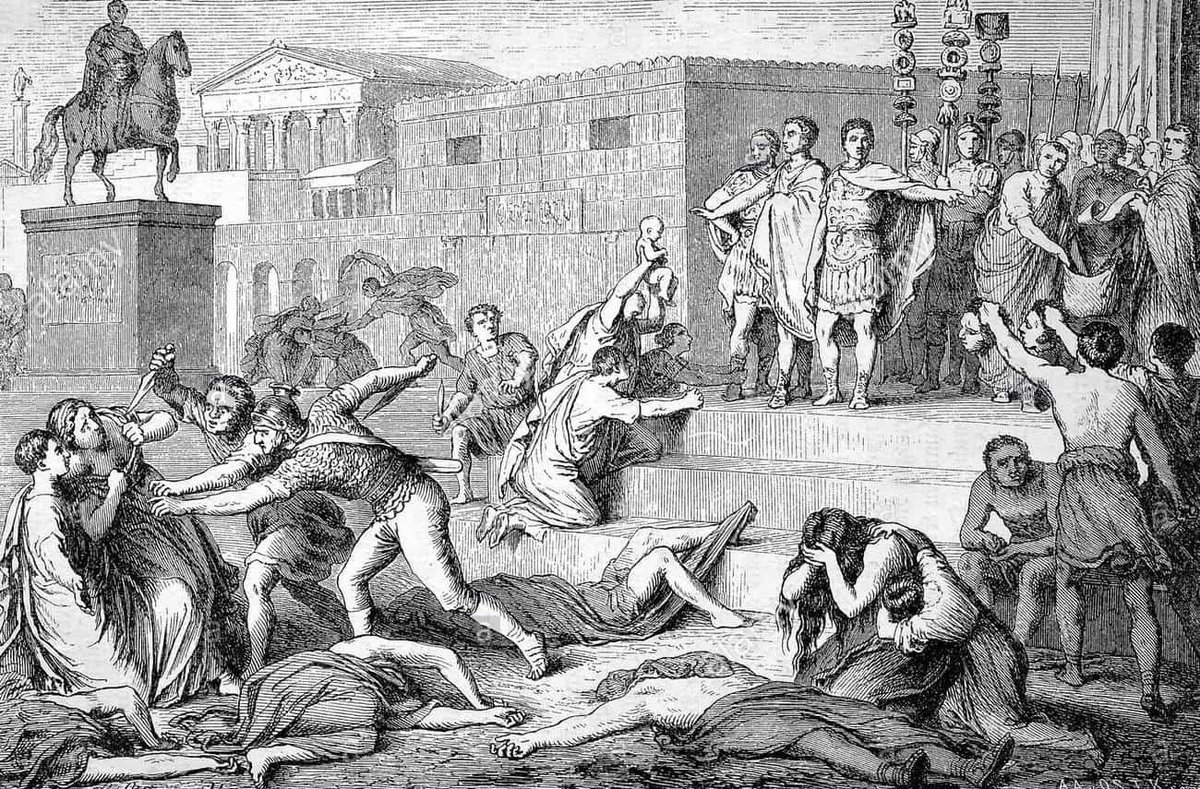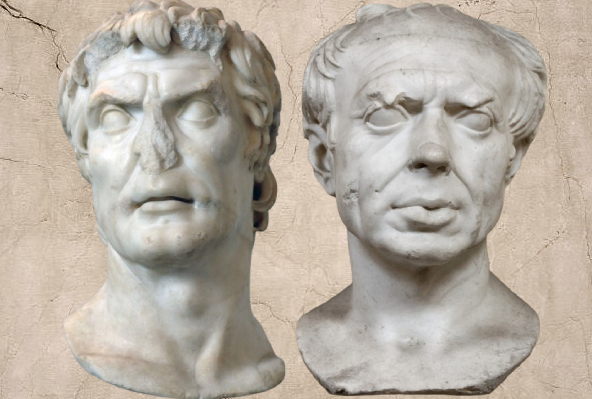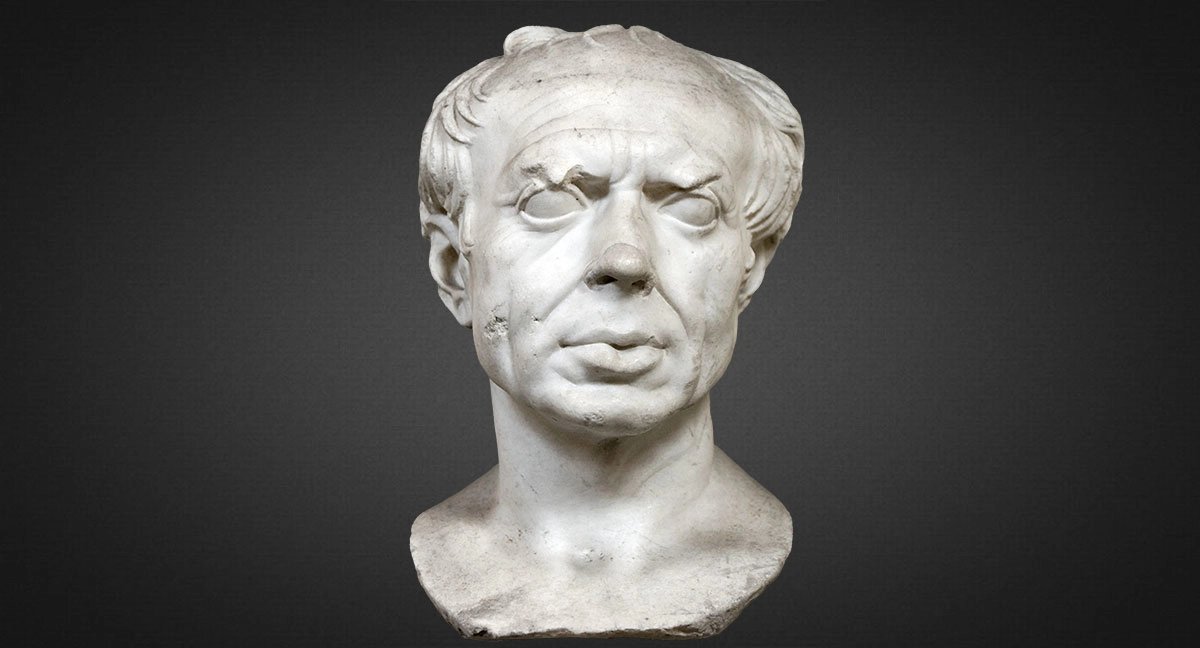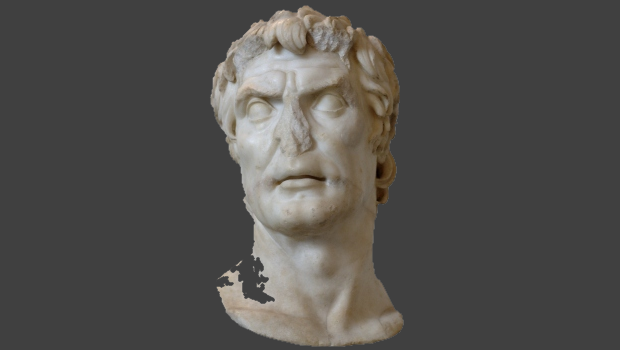The Roman Empire it's share of bad Emperors.
But nine of them were particularly vile.
Tyranny, debauchery, madness, murder: it's all on display with these worst of the worst Emperors of Rome. /🧵



But nine of them were particularly vile.
Tyranny, debauchery, madness, murder: it's all on display with these worst of the worst Emperors of Rome. /🧵


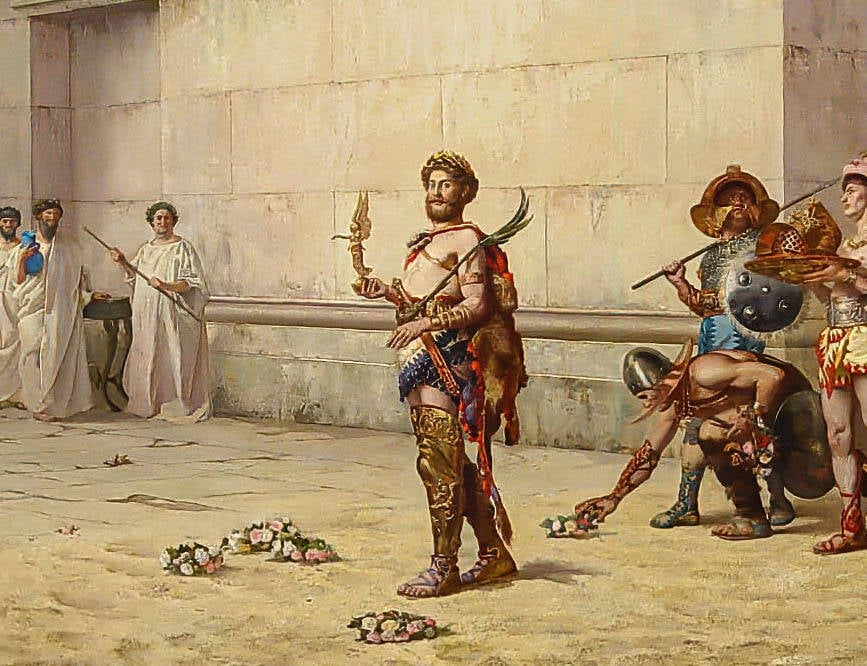

Tiberius
Dynasty: Julio-Claudian
Reign: 17 September 14 – 16 March 37 (22 years, 5 months and 27 days)
Bio:
Tiberius Claudius Nero, was the second Roman Emperor. Adopted by Augustus, he was a skilled military commander and administrator. Tiberius initially maintained the stability of the empire but became increasingly reclusive, ruling from Capri in his later years. His reign is marred by the notorious maiestas (treason) trials, driven by paranoia and political intrigue. Tiberius’ governance set important precedents for Roman imperial administration, but his legacy is overshadowed by his perceived tyranny and the brutal suppression of perceived threats to his authority.
Why he's on the list:
• Didn't want to be Emperor in the first place
• Abandoned Rome and self-exiled himself to Capri
• Did unspeakably bad things on that island
• Extremely paranoid
• Unjustly killed several people through his "Treason Trials"
Dynasty: Julio-Claudian
Reign: 17 September 14 – 16 March 37 (22 years, 5 months and 27 days)
Bio:
Tiberius Claudius Nero, was the second Roman Emperor. Adopted by Augustus, he was a skilled military commander and administrator. Tiberius initially maintained the stability of the empire but became increasingly reclusive, ruling from Capri in his later years. His reign is marred by the notorious maiestas (treason) trials, driven by paranoia and political intrigue. Tiberius’ governance set important precedents for Roman imperial administration, but his legacy is overshadowed by his perceived tyranny and the brutal suppression of perceived threats to his authority.
Why he's on the list:
• Didn't want to be Emperor in the first place
• Abandoned Rome and self-exiled himself to Capri
• Did unspeakably bad things on that island
• Extremely paranoid
• Unjustly killed several people through his "Treason Trials"

Caligula
Dynasty: Julio-Claudian
Reigned: 18 March 37 – 24 January 41 (3 years, 10 months and 6 days)
Bio:
Gaius Julius Caesar Germanicus, was the third Roman Emperor. Nicknamed "Caligula" for the small boots he wore as a child, he succeeded Tiberius. Initially popular, his reign soon turned infamous for alleged cruelty, extravagance, and claims of insanity. He purportedly squandered Rome’s wealth, indulged in grandiose projects, and exhibited erratic behavior, including declaring himself a god. Caligula’s rule ended abruptly when he was assassinated in a conspiracy involving Praetorian Guards, senators, and courtiers, leaving a legacy marked by tyranny and chaos.
Why he's on the list:
• Claimed to be a god
• Committed incest with his sisters
• Marched is legions to the shores of the English Channel just to collect shells
• Wanted to make his horse a Consul
• Particularly cruel and vicious, making fathers watch as their sons were executed
Dynasty: Julio-Claudian
Reigned: 18 March 37 – 24 January 41 (3 years, 10 months and 6 days)
Bio:
Gaius Julius Caesar Germanicus, was the third Roman Emperor. Nicknamed "Caligula" for the small boots he wore as a child, he succeeded Tiberius. Initially popular, his reign soon turned infamous for alleged cruelty, extravagance, and claims of insanity. He purportedly squandered Rome’s wealth, indulged in grandiose projects, and exhibited erratic behavior, including declaring himself a god. Caligula’s rule ended abruptly when he was assassinated in a conspiracy involving Praetorian Guards, senators, and courtiers, leaving a legacy marked by tyranny and chaos.
Why he's on the list:
• Claimed to be a god
• Committed incest with his sisters
• Marched is legions to the shores of the English Channel just to collect shells
• Wanted to make his horse a Consul
• Particularly cruel and vicious, making fathers watch as their sons were executed

Nero
Dynasty: Julio-Claudian
Reigned: 13 October 54 – 9 June 68 (13 years, 7 months and 27 days)
Bio:
Nero Claudius Caesar Augustus Germanicus, was the fifth Roman Emperor. Adopted by his great-uncle Claudius, Nero's early reign, guided by his mother Agrippina, Seneca, and Burrus, was marked by effective governance. He later became infamous for his tyranny, lavish spending, and persecution of Christians. His reign saw the Great Fire of Rome in 64 AD, after which he allegedly played the lyre while the city burned, though this is likely apocryphal. Facing revolt and losing support, Nero fled and committed suicide in 68 AD, ending the Julio-Claudian dynasty.
Why he's on the list:
• Killed his mom (Agrippina the Younger)
• Killed his tutor (Seneca)
• Responsible for the Great Fire of Rome (per several ancient historians)
• Played his lyre and sang while it burned
• Viciously persecuted the early Christians
Dynasty: Julio-Claudian
Reigned: 13 October 54 – 9 June 68 (13 years, 7 months and 27 days)
Bio:
Nero Claudius Caesar Augustus Germanicus, was the fifth Roman Emperor. Adopted by his great-uncle Claudius, Nero's early reign, guided by his mother Agrippina, Seneca, and Burrus, was marked by effective governance. He later became infamous for his tyranny, lavish spending, and persecution of Christians. His reign saw the Great Fire of Rome in 64 AD, after which he allegedly played the lyre while the city burned, though this is likely apocryphal. Facing revolt and losing support, Nero fled and committed suicide in 68 AD, ending the Julio-Claudian dynasty.
Why he's on the list:
• Killed his mom (Agrippina the Younger)
• Killed his tutor (Seneca)
• Responsible for the Great Fire of Rome (per several ancient historians)
• Played his lyre and sang while it burned
• Viciously persecuted the early Christians

Vitellius
Dynasty: Year of the Four Emperors
Reigned: 19 April – 20 December 69 (8 months and 1 day)
Bio:
Aulus Vitellius, was Roman Emperor for a brief period in 69 AD, known as the Year of the Four Emperors. Proclaimed emperor by his legions in Germania, he defeated his rival Otho but soon faced opposition from Vespasian. Vitellius' short reign was marked by extravagance and poor administration. As Vespasian's forces approached Rome, Vitellius tried to abdicate but was captured and killed on December 20, 69 AD. His death ended a turbulent rule characterized by excessive feasting and financial mismanagement, leading to Vespasian’s rise and the establishment of the Flavian dynasty.
Why he's on the list:
• Gluttonous
• Overly extravagant, squandered state resources on elaborate banquets and personal luxuries
• Coward, abandoned Rome when faced with Vespasian's advancing forces
• Inept leadership
• Failed to stabilize the Empire, leading to continued warfare and bloodshed
Dynasty: Year of the Four Emperors
Reigned: 19 April – 20 December 69 (8 months and 1 day)
Bio:
Aulus Vitellius, was Roman Emperor for a brief period in 69 AD, known as the Year of the Four Emperors. Proclaimed emperor by his legions in Germania, he defeated his rival Otho but soon faced opposition from Vespasian. Vitellius' short reign was marked by extravagance and poor administration. As Vespasian's forces approached Rome, Vitellius tried to abdicate but was captured and killed on December 20, 69 AD. His death ended a turbulent rule characterized by excessive feasting and financial mismanagement, leading to Vespasian’s rise and the establishment of the Flavian dynasty.
Why he's on the list:
• Gluttonous
• Overly extravagant, squandered state resources on elaborate banquets and personal luxuries
• Coward, abandoned Rome when faced with Vespasian's advancing forces
• Inept leadership
• Failed to stabilize the Empire, leading to continued warfare and bloodshed

Domitian
Dynasty: Flavian
Reigned: 14 September 81 – 18 September 96 (15 years and 4 days)
Bio:
Titus Flavius Domitianus, the last of the Flavian dynasty. Known for his autocratic rule, Domitian expanded and fortified the empire’s borders, reformed the financial system, and undertook significant building projects. Despite initial successes, his reign became increasingly oppressive, characterized by authoritarian control and severe persecution of political opponents. Domitian's paranoia led to numerous executions and widespread fear. His assassination on September 18, 96 AD, was orchestrated by court officials, marking his legacy as a capable but tyrannical ruler whose reign ended in violence.
Why he's on the list:
• Notoriously brutal, with torture and executions being his tools for maintaining control
• Paranoid and suspicious
• Weird dude who liked to kill flies with his pen and pluck their wings off (per Suetonius)
• Sent philosophers (including Epictetus) into exile
• Drained the treasury with his lavish games and spectacles
Dynasty: Flavian
Reigned: 14 September 81 – 18 September 96 (15 years and 4 days)
Bio:
Titus Flavius Domitianus, the last of the Flavian dynasty. Known for his autocratic rule, Domitian expanded and fortified the empire’s borders, reformed the financial system, and undertook significant building projects. Despite initial successes, his reign became increasingly oppressive, characterized by authoritarian control and severe persecution of political opponents. Domitian's paranoia led to numerous executions and widespread fear. His assassination on September 18, 96 AD, was orchestrated by court officials, marking his legacy as a capable but tyrannical ruler whose reign ended in violence.
Why he's on the list:
• Notoriously brutal, with torture and executions being his tools for maintaining control
• Paranoid and suspicious
• Weird dude who liked to kill flies with his pen and pluck their wings off (per Suetonius)
• Sent philosophers (including Epictetus) into exile
• Drained the treasury with his lavish games and spectacles

Commodus
Dynasty: Nerva-Antonine
Reigned: 17 March 180 – 31 December 192 (12 years, 9 months and 14 days)
Bio:
Lucius Aurelius Commodus, son of Marcus Aurelius. His reign marked the end of the Pax Romana, a period of relative peace and stability. Commodus is infamous for his erratic behavior, vanity, and love of gladiatorial combat, often participating in the arena himself. His administration was plagued by corruption, mismanagement, and conspiracies, leading to a decline in the empire's stability. Commodus’ increasingly autocratic and delusional rule ended with his assassination on December 31, 192 AD, plunging Rome into a period of civil war and chaos.
Why he's on the list:
• Obsessed with gladiators, more interested in being a gladiator than an Emperor
• Brutal leader who ordered executions of perceived enemies
• Brought an end to the Pax Romana
• Tarnished the reputation of his father Marcus Aurelius
• Thought he was Hercules
Dynasty: Nerva-Antonine
Reigned: 17 March 180 – 31 December 192 (12 years, 9 months and 14 days)
Bio:
Lucius Aurelius Commodus, son of Marcus Aurelius. His reign marked the end of the Pax Romana, a period of relative peace and stability. Commodus is infamous for his erratic behavior, vanity, and love of gladiatorial combat, often participating in the arena himself. His administration was plagued by corruption, mismanagement, and conspiracies, leading to a decline in the empire's stability. Commodus’ increasingly autocratic and delusional rule ended with his assassination on December 31, 192 AD, plunging Rome into a period of civil war and chaos.
Why he's on the list:
• Obsessed with gladiators, more interested in being a gladiator than an Emperor
• Brutal leader who ordered executions of perceived enemies
• Brought an end to the Pax Romana
• Tarnished the reputation of his father Marcus Aurelius
• Thought he was Hercules

Didius Julianus
Dynasty: Year of the Five Emperors
Reign: 28 March – 1 June 193 (2 months and 4 days)
Bio:
Marcus Didius Severus Julianus, a wealthy senator and former governor, he gained the throne by purchasing it from the Praetorian Guard in an auction following the assassination of Emperor Pertinax. His brief reign was characterized by political chaos and widespread discontent, as his ascension through bribery eroded his legitimacy. Didius Julianus faced immediate opposition from other claimants, leading to civil unrest. His rule ended abruptly when he was executed on June 1, 193 AD, after Septimius Severus marched on Rome and was declared emperor.
Why he's on the list:
• Only guy to become Emperor by winning an auction
• One of the shortest reigns in the history of the Roman Empire
• Was never taken seriously as his ascension through bribery eroded his legitimacy
Dynasty: Year of the Five Emperors
Reign: 28 March – 1 June 193 (2 months and 4 days)
Bio:
Marcus Didius Severus Julianus, a wealthy senator and former governor, he gained the throne by purchasing it from the Praetorian Guard in an auction following the assassination of Emperor Pertinax. His brief reign was characterized by political chaos and widespread discontent, as his ascension through bribery eroded his legitimacy. Didius Julianus faced immediate opposition from other claimants, leading to civil unrest. His rule ended abruptly when he was executed on June 1, 193 AD, after Septimius Severus marched on Rome and was declared emperor.
Why he's on the list:
• Only guy to become Emperor by winning an auction
• One of the shortest reigns in the history of the Roman Empire
• Was never taken seriously as his ascension through bribery eroded his legitimacy

Caracalla
Dynasty: Severan
Reign: 4 February 211 – 8 April 217 (6 years, 2 months and 4 days)
Bio:
Lucius Septimius Bassianus, noted for his ruthless and violent nature, Caracalla co-ruled with his brother Geta, whom he murdered in 211 AD to become sole emperor. His most significant act was the Constitutio Antoniniana (212 AD), granting Roman citizenship to all free men within the empire, expanding tax revenues. His reign was marked by military campaigns and brutal suppression of dissent. Known for constructing the grand Baths of Caracalla, his reign ended when he was assassinated on April 8, 217 AD, during a campaign in Parthia.
Why he's on the list:
• Committed fratricide by killing his brother and co-emperor Geta while he was in their mother's arms
• Unfairly proclaimed Damnatio Memoriae of Geta, ordering all races of his brother to be destroyed
• Destroyed Roman economy by debasing currency too much
• Maintained power through brutality
• Depicted by ancient historians as a cruel and tyrannical leader
Dynasty: Severan
Reign: 4 February 211 – 8 April 217 (6 years, 2 months and 4 days)
Bio:
Lucius Septimius Bassianus, noted for his ruthless and violent nature, Caracalla co-ruled with his brother Geta, whom he murdered in 211 AD to become sole emperor. His most significant act was the Constitutio Antoniniana (212 AD), granting Roman citizenship to all free men within the empire, expanding tax revenues. His reign was marked by military campaigns and brutal suppression of dissent. Known for constructing the grand Baths of Caracalla, his reign ended when he was assassinated on April 8, 217 AD, during a campaign in Parthia.
Why he's on the list:
• Committed fratricide by killing his brother and co-emperor Geta while he was in their mother's arms
• Unfairly proclaimed Damnatio Memoriae of Geta, ordering all races of his brother to be destroyed
• Destroyed Roman economy by debasing currency too much
• Maintained power through brutality
• Depicted by ancient historians as a cruel and tyrannical leader

Elagabalus
Dynasty: Severan
Reign: 16 May 218 – 12 March 222 (3 years, 9 months and 24 days)
Bio:
Born Varius Avitus Bassianus. Ascended to the throne at age 14, he was known for his devotion to the sun god Elagabal, importing its worship to Rome and serving as its high priest. His reign was marked by religious controversy, extravagant behavior, and disregard for Roman traditions, including controversial marriages and lavish public displays. Elagabalus’ eccentricities and disregard for political norms alienated the military and Senate. His rule ended when he and his mother were assassinated in a Praetorian Guard coup in 222 AD, leading to his cousin Severus Alexander's ascension.
Why he's on the list:
• Married a Vestal Virgin, twice (same one)
• Totally disregarded Roman tradition, attempting to lift Elagabal above the Roman pantheon
• Completely lost support of Roman military because of his weird behavior
• Ineffective administrator of Rome, showing little interest in the responsibilities of governance, preferring to focus on religious and personal pursuits
• Definitely lived on the wild side, sexually
Dynasty: Severan
Reign: 16 May 218 – 12 March 222 (3 years, 9 months and 24 days)
Bio:
Born Varius Avitus Bassianus. Ascended to the throne at age 14, he was known for his devotion to the sun god Elagabal, importing its worship to Rome and serving as its high priest. His reign was marked by religious controversy, extravagant behavior, and disregard for Roman traditions, including controversial marriages and lavish public displays. Elagabalus’ eccentricities and disregard for political norms alienated the military and Senate. His rule ended when he and his mother were assassinated in a Praetorian Guard coup in 222 AD, leading to his cousin Severus Alexander's ascension.
Why he's on the list:
• Married a Vestal Virgin, twice (same one)
• Totally disregarded Roman tradition, attempting to lift Elagabal above the Roman pantheon
• Completely lost support of Roman military because of his weird behavior
• Ineffective administrator of Rome, showing little interest in the responsibilities of governance, preferring to focus on religious and personal pursuits
• Definitely lived on the wild side, sexually

• • •
Missing some Tweet in this thread? You can try to
force a refresh


